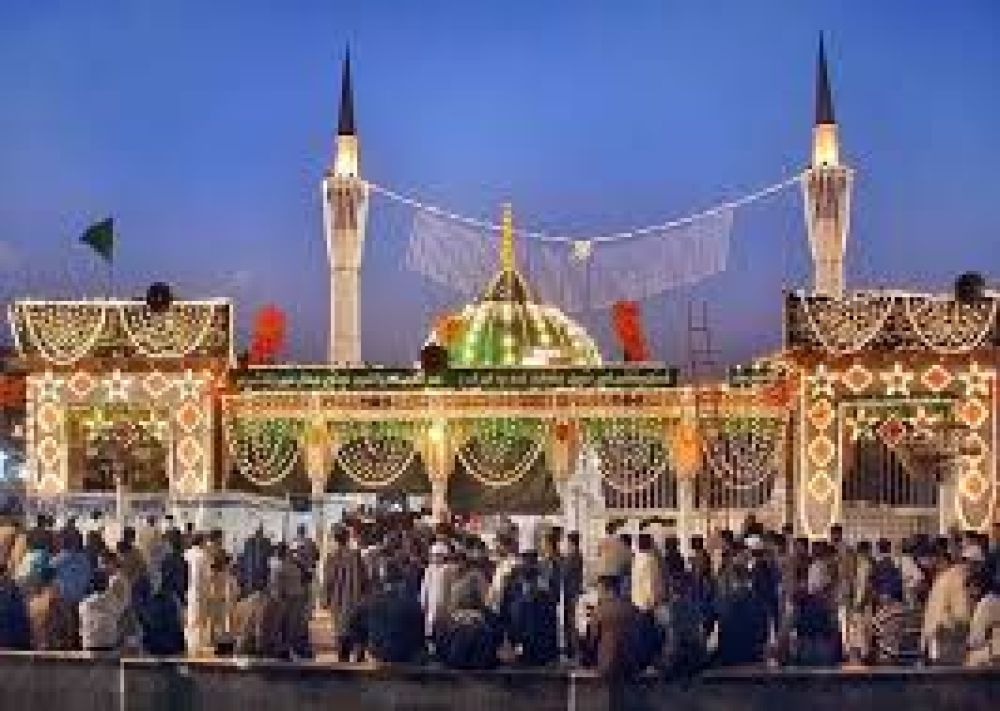

Data Darbar, also known as the Data Durbar Complex, is one of the largest Sufi shrines in South Asia, dedicated to the Persian Sufi saint, Abul Hassan Ali Hajvery, commonly known as Data Ganj Bakhsh. The shrine is located in the bustling city of Lahore, Pakistan and represents the rich cultural and spiritual history that has been a beacon for pilgrims and tourists alike for centuries.
The origins of the shrine date back to the 11th century when the revered saint Ali Hajvery came to the region to spread the message of Islamic mysticism. His teachings and humanitarian works earned him widespread admiration, and after his death, his tomb became a sacred site attracting followers from across the Islamic world.
Over the years, the mausoleum was expanded and beautified by various rulers, notably during the Mughal era when Lahore became an imperial capital. The complex evolved to not only include the shrine but also mosques, libraries, and langar (community kitchens) – establishing Data Darbar as both a spiritual center and welfare establishment.
The tourism history of Data Darbar is closely intertwined with religious pilgrimage, with the visitors being primarily devotees and spiritual seekers. However, its historical and architectural significance also attracted scholars, historians, and culturally curious tourists from around the world.
The "Urs," or death anniversary of Data Ganj Bakhsh, is an event of immense importance and draws millions of visitors every year. This festival alone has been a significant factor in promoting tourism in the region, showcasing the rich traditions and vibrant religious practices of the country.
In recent years, the government and tourism boards have taken active steps to preserve and promote Data Darbar as a key tourist destination. Efforts have been made to improve accessibility and facilities for the diverse demographic that visits the shrine, including better lodging, security, and information services for international tourists.
With the rise of digital media and social platforms, Data Darbar has gained international visibility, attracting a new generation of global travelers interested in spiritual exploration and the Sufi heritage of the subcontinent.
There has also been a growing trend of incorporating religious tourism into broader travel experiences, such as city tours that explore other historical and cultural landmarks of Lahore. The shrine serves as an anchor for such tours, reinforcing its status as an essential pillar of the city's tourism offering.
Furthermore, the inclusion of cultural events, such as Qawwali (devotional music) nights and spiritual talks, have expanded the appeal of Data Darbar beyond traditional pilgrimage tourism. These events contribute to a more comprehensive understanding of the local culture and amplify the overall experience of visiting Lahore.
Data Darbar remains an emblematic site of spirituality and tradition, with a tourism history that beautifully captures the evolving nature of cultural exchanges and religious reverence. The shrine continues to be a central figure in the narrative of Lahore's, and indeed Pakistan's, rich historical and spiritual tapestry—drawing both the faithful and the curious from all over the world.